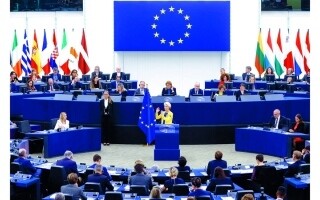
One of the banking officials stated in an interview with the newspaper "Al-Emarat Al-Youm" that banks are required to request a certificate of income or other confirmation of the client's income source if monetary amounts unrelated to their regular income appear in their bank account.
The official, wishing to remain anonymous, added that while the certificate on income is not necessarily specified in the established regulations in ordinary circumstances, monitoring banking operations and unusual transactions on the account is mandatory, as the Central Bank allows banks to require confirmation of the client's income and has the right to suspend the account and cards if the client fails to provide the requested information within a specified period, usually a month.
"For example, if the client's income over the years is about 5,000 dirhams per month, but suddenly the bank finds an amount of 200,000 dirhams in his account with unclear origins, then the bank has the right to take a few steps. Firstly, demand the source of this money or a fresh certificate on income from the client, then provide time for the submission of the information, and after passing the specified month, the bank is obliged to promptly suspend the banking account and inform the Central Bank, which issues a decision on extending the suspension of the account until the information is updated or informs the policy, depending on the origin and amounts found in the account."
He also clarified that procedures in the United Arab Emirates, whether within the framework of the "Know Your Customer" initiative or for combating money laundering, are always transparent and clear for clients. In connection with this, clients need to cooperate with the banks they deal with, updating information and providing important documents to avoid blocking their banking accounts.














